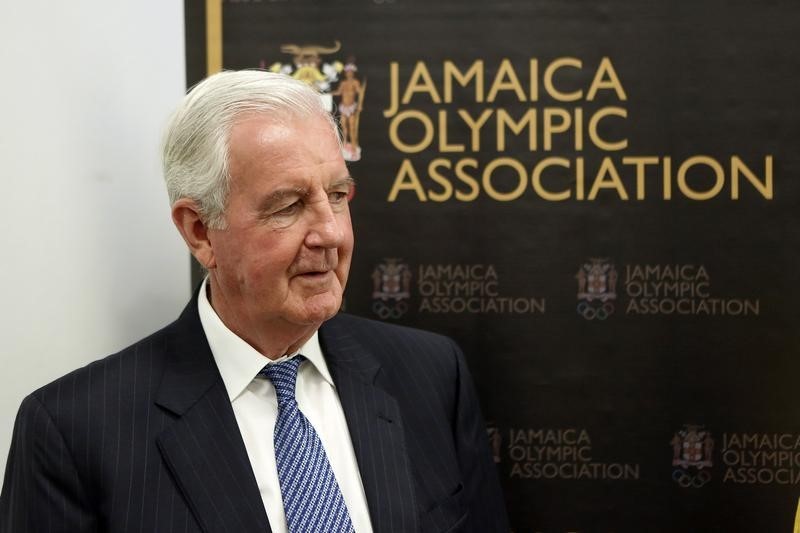By Steve Keating
TORONTO (Reuters) - Athletes will one day come to multi-sport events like the Pan American Games knowing they are competing on a level playing free of drug cheats, says Craig Reedie, head of the World Anti-Doping Agency (WADA).
For some, ridding the world of performance-enhancing drugs is a losing battle, but for Reedie, a British Olympic official who took over as WADA chief 18 months ago, there would be no reason to get up in the morning and go to work if he believed the war cannot be won.
"I'm a glass half full man, I want to believe it is possible to have clean sport," Reedie told Reuters during a stop at the Pan American Games in Toronto. "I am prepared to happily concede that in a world of many billion people there is never going to be total eradication.
"But I think there is a very reasonable chance that at an organised sport level we can get to a situation where those people who cheat are an ever diminishing part of the sport family.
"I wouldn't be particularly comfortable waking up on Monday morning thinking we have no chance. Why bother?"
While the corruption scandal rocking world soccer and cleaning up FIFA have become the new sporting cause du jour, the fight to remove drugs goes on out of the spotlight.
At the 2011 Pan Ams in Guadalajara, Mexico, three athletes failed doping tests just hours after the opening ceremony, offering a quick reminder that anti-doping crusaders must remain vigilant.
Four years later in Toronto that memory is not forgotten. Pan Am officials have put in place a comprehensive drug-testing program that reflects the largest multi-sport event ever staged in Canada with 7,000 athletes from 41 countries.
The TO2015 Anti-Doping Program is providing doping control services before and during the Games on behalf of the Pan American Sports Organization (PASO). It will conduct 1,500 urine tests and over 400 blood tests.
Testing procedures will follow the revised WADA Code which Reedie says is a polished document that is about as good as it is going get.
WADA's first president, outspoken Canadian Dick Pound, shot from the hip, putting the anti-doping issue on the front pages. He was followed by Australian politician John Fahey, who employed a more diplomatic approach, bringing greater government and law enforcement involvement to the fight.
Reedie sees his mandate as one that is clearly defined, getting WADA's various constituencies to make better use of the tools they have been provided.
"The rules of the game have been clearly established," said Reedie. "This is the third revision of the Code. We should have the rules in about an ideal state.
"We've now got everybody compliant in having a set of rules. What I want to see now is everyone under this set of rules doing it better.
"I want everybody to say; ok the rules are now clear we need to do this better.
"I would like to see our compliance efforts being respected and everybody picking up the pace and doing it better.

"That's where I think I am."